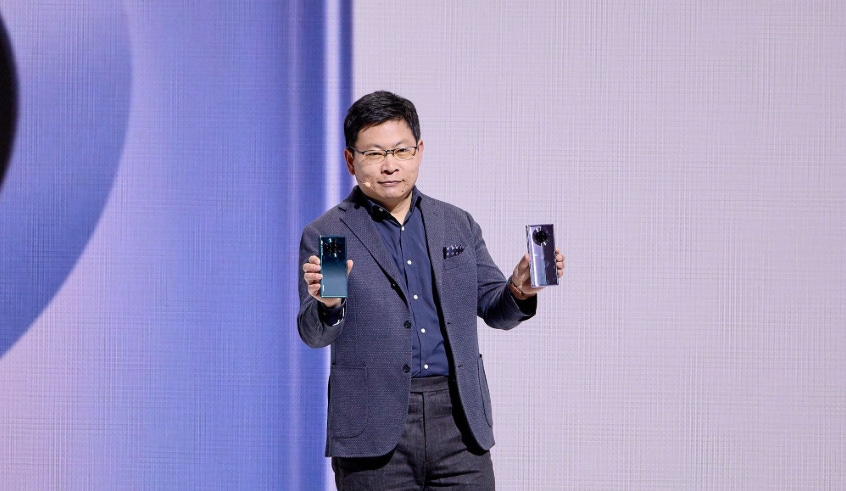Huawei has told the media that P40, the company’s next flagship smartphone will be launched with its own mobile service suite but will be built on Android 10 instead of its own HarmonyOS.
December 27, 2019

Huawei has told the media that P40, the company’s next flagship smartphone will be launched with its own mobile service suite but will be built on Android 10 instead of its own HarmonyOS.
Richard Yu, CEO of Huawei Technologies Consumer Business Group, told a group of journalists from the French media that the company’s next flagship smartphone, the P40 (and likely P40 Pro), will be launched at the end of March 2020 at a special event in Paris. The exact date is yet to be announced. Yu promised the media representatives, who were on a press tour to the company’s headquarters in Shenzhen, that the phone will be in a design never seen before (“jamais vu”), with improved photography quality, better performance, and boosted automation.
Yu also confirmed that the phone will be built on Android 10 with Huawei’s customised user interface, EMUI. This is consistent with the company’s earlier announcement that its own operating system, HarmonyOS, will not be powering smartphones or tablets in 2020. Instead it will be used on other connected devices, including smart TVs and wearables.
Meanwhile, the Indian newspaper The Economic Times quoted Charles Peng, the CEO of the Huawei and Honor brands in India in Huawei’s Consumer Business Group, as saying that P40 will come equipped with Huawei Mobile Services (HMS), in place of Google Mobile Services (GMS). Both brands from Huawei as well as Oppo, another Chinese smartphone maker, were reported to have approached app developers to make the top apps in India available for HMS as well as for Oppo’s own Color OS.
“We have our own HMS and are trying to build a mobile ecosystem. Most of the key apps such as navigation, payments, gaming and messaging will be ready soon.” Peng told The Economic Times. Frandroid, a French media outlet, noted that HMS should be ready at the same time as the launch of P40.
The Economic Times reported that Huawei offers developers up to $17,000 for making their apps available for HMS, supported by Huawei’s $1 billion global fund the company announced earlier this year. Oppo’s coffer “to develop a “new intelligent service ecosystem” is reported to amount to $143 million.
It is worth highlighting that having the most popular third-party apps in a certain market (India, China, for example) available for HMS is different from bypassing GMS. The core Google services and APIs, including Chrome browser, YouTube and YouTube Music, Play Store, Google Drive, Duo, Gmail, Maps, as well as Movies and TV, are optimised to work with the Android operating system. Most importantly, there is Google’s fundamental “search” capability that powers everything else.
Developing its own operating system as well as an overall mobile ecosystem has long been on Huawei’s card. As Ren Zhengfei, Huawei’s founder, told media earlier, the work, as well as in-house chipset development capability, started long before Huawei ran afoul of the US government. However, the company has learned it the hard way that such tasks are more difficult than building a nice phone. Richard Yu had to renegade on his own promises more than once. Shortly after Huawei was put on the Entity List Yu said that the company’s own operating system would be able to power its new smartphones by the end of this year or the beginning of next. That has now been officially denied when HarmonyOS’s positioning was clarified. Yu also said, prior to the launch of P30 in September that there would be a workaround solution to load GMS on the new smartphone. That did not happen either.
Consumers may also find Huawei’s narrative less than convincing. As IDC’s Navkender Singh put it to The Economic Times, “There will be a breakdown of the conversation that Huawei or Honor devices will have OS and app store issue. It is going to be very tough for Huawei/Honor to sell the phone based on their own suite.”
About the Author(s)
You May Also Like








.png?width=300&auto=webp&quality=80&disable=upscale)


_1.jpg?width=300&auto=webp&quality=80&disable=upscale)


.png?width=800&auto=webp&quality=80&disable=upscale)